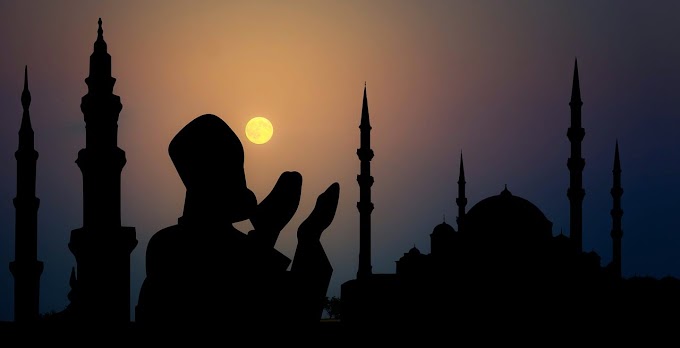"Qurbani" refers to the Islamic practice of sacrificing an animal during the festival of Eid al-Adha, also known as the Festival of Sacrifice. It is one of the most important religious observances for Muslims worldwide.
During Eid al-Adha, which is celebrated annually, Muslims commemorate the willingness of Ibrahim (Abraham) to sacrifice his son as an act of obedience to God. According to the Islamic tradition, just as Ibrahim was about to sacrifice his son, God provided a lamb or ram as a substitute, demonstrating his mercy and acceptance of Ibrahim's devotion.
The act of Qurbani involves the ritual slaughter of an animal, typically a sheep, goat, cow, or camel, following specific Islamic guidelines. The meat from the sacrificed animal is then divided into three parts: one part is retained for personal consumption, another is given to relatives and friends, and the final portion is distributed among the less fortunate and those in need.
Qurbani holds significant spiritual and social importance within the Muslim community. It serves as a reminder of selflessness, gratitude, and the willingness to make sacrifices for the sake of God. It also promotes compassion, charity, and the sharing of blessings with others.
Qurbani holds significant spiritual and social importance within the Muslim community. It serves as a reminder of selflessness, gratitude, and the willingness to make sacrifices for the sake of God. It also promotes compassion, charity, and the sharing of blessings with others.
Muslims perform Qurbani as a religious obligation and as a way to commemorate the sacrifice of Ibrahim (Abraham) and his willingness to obey God's command. The practice of Qurbani is rooted in the story mentioned in the Quran, where Ibrahim was tested by God and was prepared to sacrifice his son Ismail (Ishmael) as an act of submission.
However, just as Ibrahim was about to carry out the sacrifice, God intervened and provided a lamb or ram as a substitute. This act demonstrated God's mercy and acceptance of Ibrahim's devotion. Muslims, therefore, perform Qurbani during the festival of Eid al-Adha to remember and honor Ibrahim's example of unwavering faith and obedience.
The act of Qurbani symbolizes several important aspects for Muslims:
Obedience to God:
Qurbani represents the submission and obedience to God's commandments. It serves as a reminder for Muslims to prioritize their devotion to God above all else.
Gratitude and Thankfulness:
By sacrificing an animal, Muslims express gratitude to God for His blessings, provisions, and mercy. It serves as a reminder to be appreciative of the blessings in their lives.
Sharing and Charity:
Qurbani encourages Muslims to share their blessings with others. The meat from the sacrificed animal is distributed among family, friends, and the less fortunate, emphasizing the importance of charity and caring for the needy.
Unity and Brotherhood:
Qurbani brings Muslims together as a community. It strengthens bonds of kinship, friendship, and social solidarity, as people come together to partake in the act of sacrifice and share in the blessings.
It is important to note that Qurbani is not obligatory for all Muslims but is highly recommended for those who are financially capable. It is performed during the Islamic month of Dhul Hijjah, specifically on the 10th, 11th, and 12th days, which coincide with the days of Eid al-Adha.
People Also Read: Surah Al-Fatiha
Conclusion:
Qurbani, the Islamic practice of animal sacrifice, holds deep religious significance as Muslims commemorate the sacrifice of Ibrahim and his submission to God's command. It is performed during the festival of Eid al-Adha, symbolizing obedience, gratitude, and thankfulness to God for His blessings and mercy. Qurbani promotes the values of sharing, charity, and compassion by distributing the meat among family, friends, and the less fortunate, fostering unity and social cohesion within the Muslim community. When performed in accordance with Islamic guidelines, including animal eligibility, proper slaughtering methods, and sincere intention, Qurbani is considered halal (permissible) and adheres to the principles of Islamic jurisprudence. Qurbani serves as a reminder of the importance of faith, sacrifice, and selflessness, encouraging Muslims to prioritize their devotion to God and extend kindness to others.
FAQ:
Q: Can Qurbani be performed on behalf of someone else?
A: Yes, Qurbani can be performed on behalf of someone else, such as a deceased family member or someone who is unable to perform it themselves. This act of performing Qurbani on behalf of another is known as "Nafl Qurbani" and is considered a virtuous deed.
Q: Are there any specific guidelines for the distribution of Qurbani meat?
A: Yes, there are general guidelines for the distribution of Qurbani meat. It is recommended to divide the meat into three equal parts. One part is for personal consumption, another part is for relatives and friends, and the remaining part is to be given to the less fortunate and those in need, emphasizing the spirit of charity and sharing.
Q: Are there any restrictions on who can perform the Qurbani sacrifice?
A: The person performing Qurbani should be a Muslim of sound mind and maturity. It is recommended for individuals who meet the financial requirements and are able to fulfill the religious obligations associated with Qurbani. However, it is not restricted by gender or age, and both men and women can participate in the act of Qurbani.












